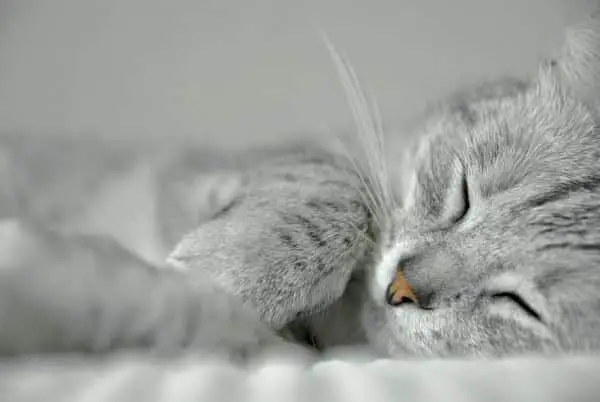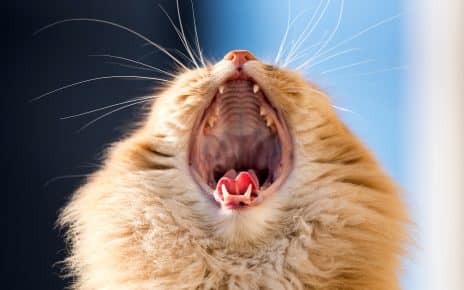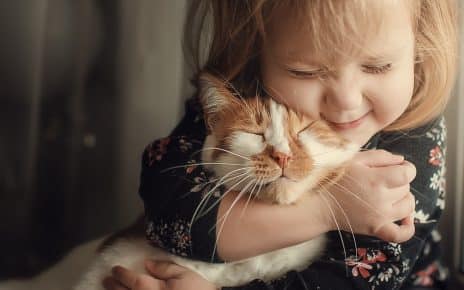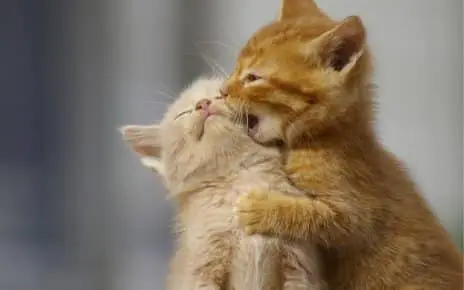They don’t have a nine to five job, but cats sleep roughly twice as much as we do. As a matter of fact they only spend one third of their life awake. Which begs the question, why do cats sleep so much
The simplest answer is, they sleep because they can! But it’s not quite as simple as that – there are mistaken assumptions about the sleeping habits of cats to be corrected as well as things that you should know about your kitty’s slumbering ways.
Let’s investigate, shall we
Cats are NOT nocturnal
Yes, your kitty may be wide awake as you’re gearing up for bed and still as energetic – and hungry – when you’re groggily rising…but has she been up the whole time
A lot of us assume that cats are nocturnal, but this actually isn’t true. Cats usually sleep around 16 hours divided throughout the day and night. Depending on each individual cat it can be more or less and they don’t tend to sleep for that long at once, preferring to split their slumbering throughout the day.
And their favorite sleeping times? Well, pretty much any time that’s not dusk and dawn. Cats are crepuscular, meaning they are mostly active during the transition periods between night and day since dusk and dawn are the periods of time when their potential pray is active which results in some good hunting, or at least, entertainment.
And ‘though your indoor cat doesn’t need to hunt to keep herself fed, it’s in her blood.
So when a cold paw wakes you up at 5 in the morning, rest assured that your feline friend has probably been dreaming along with the rest of the family – and now it’s time for her to hunt, even if it’s just her human she’s after.
Cats don’t always sleep because they’re tired
When one spends the majority of one’s day asleep, you’d assume that one is extremely tired.
Not so in the case of your feline friend.
Just like humans, cats don’t always go into a deep sleep when they rest. Tigers and other larger relatives of our tiny feline companions save up a lot of energy for hunting. This is probably why in most of the documentaries you see, larger feline predators are relaxing in the shade. The domesticated cats share this relaxing need. We haven’t really affected it, even though we drastically changed their lives when we took them in as pets.
Though cats can stockpile and save energy for future use, they sometimes overspend and exhaust themselves. Many owners get worried but in most cases, the reason why a cat may not be moving from the sofa is simply because it’s exhausted and needs time to recover. This resting period can last even for a few days, depending on how long your kitty has been out, burning up energy on various activities.
It’s nothing to worry about, as long as a furry pair of radars spike up when they detect a can of cat food being opened.
Your cat’s sleeping habits might be your fault
Domestic cats live indoors and are greatly affected by the way people treat them as they’re growing up. The biological clock of a cat clearly tells them to wake up at dawn and dusk to hunt and to conserve energy in between these two time periods. However, cats have gotten used to sleeping with their owners through these periods and their feeding habits have been greatly changed as well.
Sometimes a cat may wake you up at dawn asking to be let out, but if it’s used to your sleeping schedule, it will gladly nap with you under the blankets.
Indoor cats with too much energy to spare can become a challenge, especially when they’re young and playful. Keeping your cats active during the day will assure they’ll sleep like logs at night. A much easier solution is to have two cats instead of one, so you can get your sleep while your cats take care of their boredom.
Just be sure to secure all fragile objects you have laying around the house or you may be in for a very interesting surprise when you wake up.



